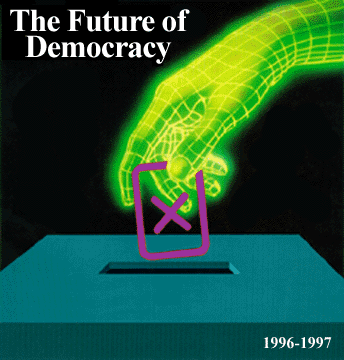- About this Program
- 2012 Conflict in the 21st Century
- 2011 Our Nuclear Age: Peril and Promise
- 2010 South Asia: Conflict, Culture Complexity, and Change
- 2009 Cities: Forging an Urban Future
- 2008 Global Poverty and Inequality
- 2007 Global Crises: Governance and Intervention
- 2006 The Politics of Fear
- 2005 Oil and Water
- 2004 Dilemmas of Empire and Nation Building
- 2003 Sovereignty and Intervention
- 2002 Global Inequities
- 2001 Race and Ethniciity: A Global Inquiry
- 2000 Global Games: Sports, Politics, and Society
- Symposium
- 1999 Global Crime, Corruption, and Accountability
- 1998 Exodus and Exile: Refugees, Migration, and Global Security
- 1997 The Future of Democracy
- International Symposium
- Special Events
- Workshops
- 1996 Religion, Politics, and Society
- 1995 20/20 Visions of the Future
- 1994 Ethnicity, Religion and Nationalism
- 1993 Transformations in the Global Economy
- 1992 - International Security: The Environmental Dimension
- 1991 Confronting Political and Social Evil
- 1990 The Militarization of the Third World
- 1989 Drugs, International Security and U.S. Public Policy
- 1988 Foreign Policy Imperatives for the Next Presidency
- 1988 Covert Action and Democracy
- 1987 The West Bank and Gaza Strip
- 1986 International Terrorism
- News
- Press Clips
- Calendar
- Resources
EPIIC Archives
1997 The Future of Democracy

|
|
In the last decade, the percentage of countries considered democratic has grown from 42 to 61 percent (117 of 191 countries). A slim majority -- 54 percent -- of the world's people now lives under varying forms of democratic rule.
As this trend slows, what is the future of a "worldwide democratic revolution"? Is liberal democracy the most desirable form of government? Does it resonate universal norms, or is it an effort to impose Western values? Is democracy, once considered a unifying movement, further dividing the Western and non-Western world?
As the fates of newly democratic countries, from Russia to South Africa, were hanging in the balance, and as regimes in Burma, China, Indonesia and Nigeria suppressed popular democratic movements, our thirteenth international symposium gathered a diverse group of practitioners, policymakers and academics to explore the future of democracy and democratization.
How fragile or meaningful is democratic government in fledgling democracies such as Haiti or Palestine? What are the prospects for the consolidation of democracy in divided, multiethnic societies? What are the prospects for civil society in India and in Israel in the aftermath of their controversial elections? How do civil-military relations affect the prospects for democracy in Algeria, in Chile? What is the relationship between religion and democracy? How vigorous is democracy in the United States? What are the responsibilities of citizenship in democracies? What will be the fate of Hong Kong?
Can democracy exist without state sovereignty? Does the international community have an obligation to intervene to defend or restore democratically-elected governments? Do democracies wage war with one another? What are the increased dangers of war and instability in transitional democracies? What is the relationship between capitalism and democracy? Economic reform and democracy? What will be democracy's role in the 21st century?

